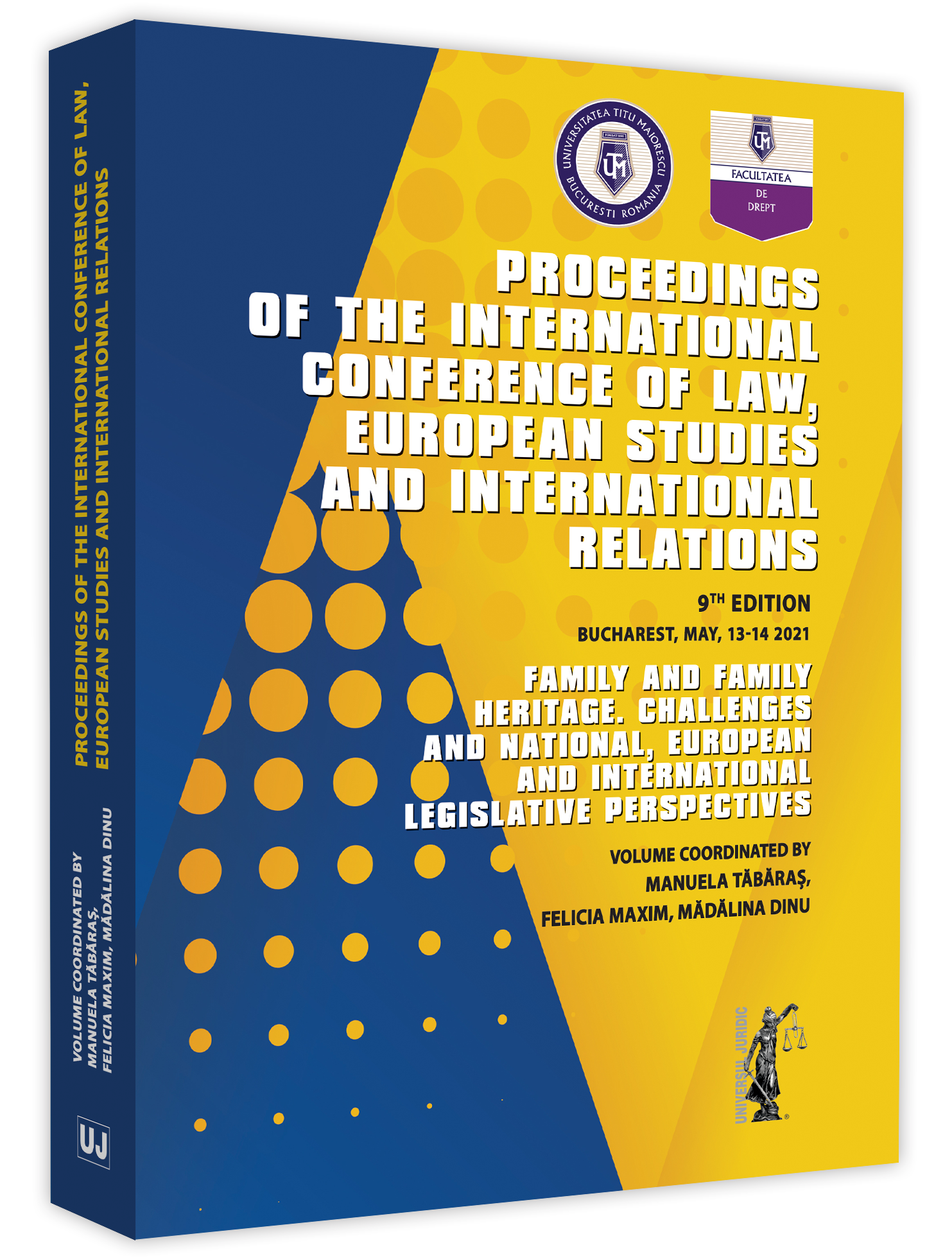THE ROLE OF FAMILY MEMBERS IN ORGAN DONATION FOR TRANSPLANTATION
THE ROLE OF FAMILY MEMBERS IN ORGAN DONATION FOR TRANSPLANTATION
Author(s): Adina ArdeleanuSubject(s): Law, Constitution, Jurisprudence, Civil Law
Published by: Editura Hamangiu S.R.L.
Keywords: organ donation; transplant; opt in; opt out; consent of family members;
Summary/Abstract: The need for organ transplantation is constantly increasing not only at national level, but also at European and global level, representing one of the most sensitive aspects in the field of medical policies. At the same time, the European legislature analyzes the problem of insufficiency of human organs available for transplantation, as the biggest challenge for Member States in the field of organ transplantation . Currently, the number of organ donations is insufficient compared to the number of patients on the waiting list for transplantation, and members of the European Parliament point out that the mortality rate of these patients is particularly high. The consent expressed by the family members in order to take organs for donation is an important limiting factor for the successful realization of the donation and, implicitly, of the transplant. The refusal of family members to donate organs is therefore a key element of the lack of organs. In Europe, the refusal of families to donate the organs of their deceased relatives varies between 6% and 42%. Differences in attitude, which is difficult to understand in this case as well, could be explained by the variety of procedures for donor consent legislation, for living and deceased donors, as well as other important cultural, economic and social factors that influence society's perception of donation benefits.
Journal: Conferința Internațională de Drept, Studii Europene și Relații Internaționale
- Issue Year: 2021
- Issue No: IX
- Page Range: 378-382
- Page Count: 5
- Language: English

